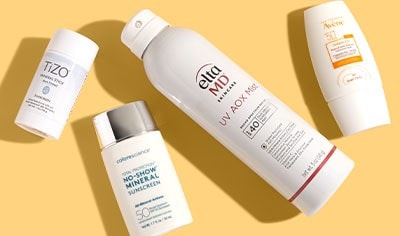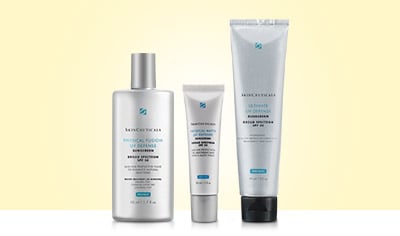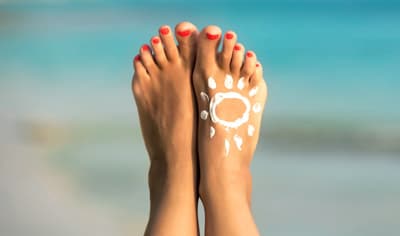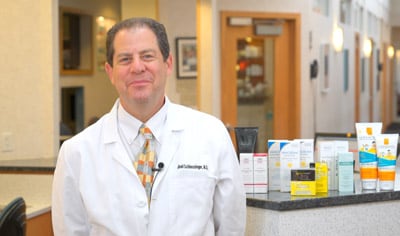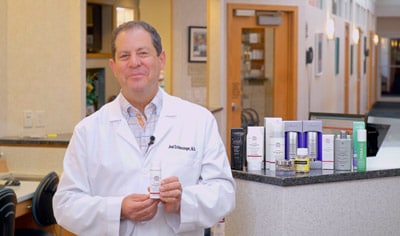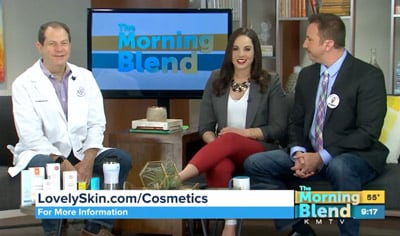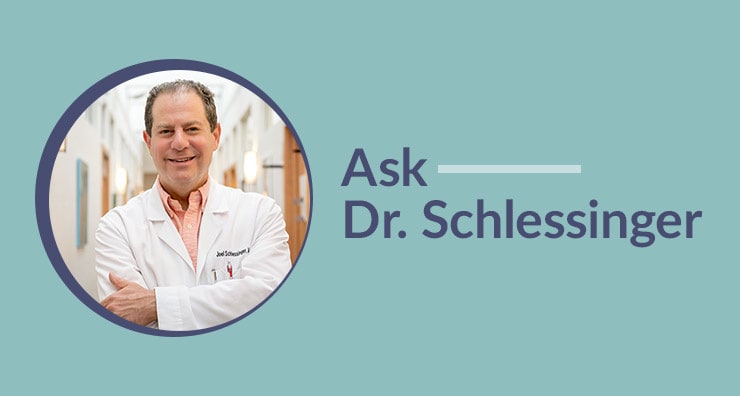
We’ve all been taught from a young age that we should use sunscreen to keep safe in the sun. But what if you find out that you’re pregnant, and suddenly all of your skin care changes? Or what if you’ve grown more aware of the world, and want something that’s environmentally friendly? What if you’re a parent now, and you want to know what’s going to be safe for your baby or kids? What else should we be doing to protect our skin?
To answer these questions, we sat down with Dr. Joel Schlessinger, a board-certified dermatologist and the CEO of LovelySkin! Keep reading to find out how to when to use sunscreen, how to pick one out and more.
How do sunscreens work?
That depends on what kind of sunscreen you’re using. First and foremost, there are chemical sunscreens and there are mineral sunscreens. Chemical sunscreens use active ingredients like oxybenzone and octinoxate to absorb UV light and diffuse it harmlessly.
Mineral sunscreens, also known as physical sunscreens, instead use zinc oxide or titanium dioxide to physically deflect the sun’s rays.
How should we choose between a physical or chemical sunscreen?
The nice thing about chemical sunscreens is that they tend to cover a wider spectrum and last longer than mineral sunscreens. On the other hand, a recent report from the FDA said they can get into the bloodstream, and not all of them have been thoroughly tested as to what happens when they get there. So if you’re pregnant, you need mineral. No chemical sunscreen for you. The same thing applies to a baby or a young child.
Chemical sunscreens are also not considered reef safe since some of their ingredients, including oxybenzone and octinoxate, are potentially harmful to coral. We’re still not sure if any sunscreen is 100% reef safe, but research suggests that mineral sunscreens are the better option.
That said, switching to entirely non-chemical sunscreens might not be the best idea. I can think of several very effective sunscreens that contain oxybenzone and octinoxate, and a lot of times you need those chemicals to get the best protection possible. What I would recommend is that you wear chemical sunscreens in your daily life and mineral sunscreens if you’re pregnant, a young kid or if you’re visiting a beach.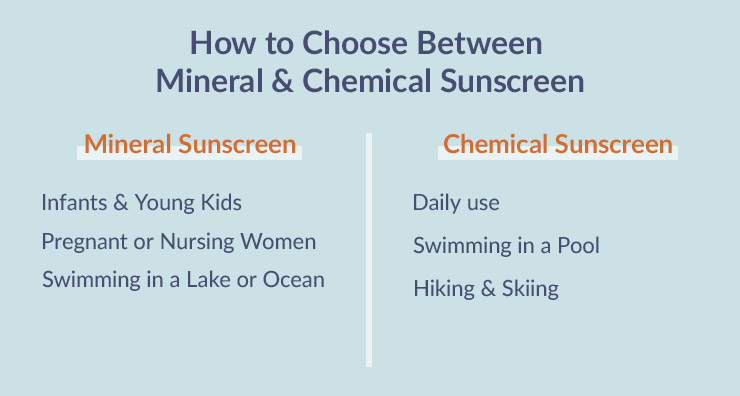
What should people look for when buying sunscreen?
First, look for a sunscreen with SPF between 30 and 50. That will give you a good amount of protection. Anything higher than SPF 50 might offer a little more protection, but not usually enough to justify the increase in price.
The other thing to look for on the label is broad-spectrum. SPF only measures a sunscreen’s ability to block UVB light, the part of sunlight most closely linked with sunburns and skin cancer. It doesn’t measure how good it is at stopping UVA light, which can cause premature wrinkles and other signs of aging. A sunscreen labeled broad-spectrum has been tested to protect against both UVA and UVB light and will shield you from much of the sun’s harmful rays.
How often should people use sunscreen?
Every day! Even if you’re not going to the beach, you’re still being exposed to sunlight. Those working indoors or who drive a lot should also consider that UV light comes through windows as well.
The same goes for your winter skin care routine. A lot of us tend to think when it gets colder the sun won’t burn us, but that’s really not true. UVA and UVB light are still both present, so it’s important to protect against them. Also, when there’s snow on the ground, it reflects the sunlight, meaning on a snowy day, you’re almost getting double the exposure, especially when you are skiing! To prevent premature aging and reduce the risk of skin cancer, apply sunscreen every morning, and reapply as needed. It’s the best thing you can do for the health of your skin!
Are there any alternatives to sunscreen that people should consider?
While there’s no true replacement for sunscreen, there are some good ways to supplement it. I like to recommend HELIOCARE Antioxidant Supplements. They’re kind of a super-antioxidant that boosts your body’s ability to resist sun damage. It can be a great sunscreen booster. So, if you miss a couple spots or forget to reapply sunscreen throughout the day, this supplement can be a great way to help with that.
Another thing to keep in mind is protective clothing. Having the right hat or cloth to cover up an exposed area will make a big difference in keeping sun damage at bay. Also, enjoy your time in the sun, but make sure to give your skin some rest indoors or in the shade every so often.
Still have questions about sunscreen?
Check out our blog on Seasonal Sun Protection. If you’re curious about other skin care or dermatology topics, let us know in the comments below what you’d like to be covered in the next Ask Dr. Schlessinger.

About the Author
Evan is a content writer at LovelySkin who enjoys providing information to help people feel more confident about their skin care. In his spare time, he likes to read, write creatively and wander through used bookstores.
Other Posts by EvanSkinCeuticals Reveals 6 Must-Have Skin C...
5 Ways to Pamper Your Skin While You Wat...
Follow us on social
Follow us on social networks and be one of the first to learn about sales, giveaways, and free samples

